Former Idol Noriko Kato: “If I hadn’t been farming, I might have become a mean person”
She made her debut as a singer as a member of Sakura-gumi (Sakura Kids' Club), and 31 years later, she made her breakthrough with "Magical Brain Power! and became a breakout star with "Magical Brain Power! Now she is enjoying her life as an entertainer and a farmer!
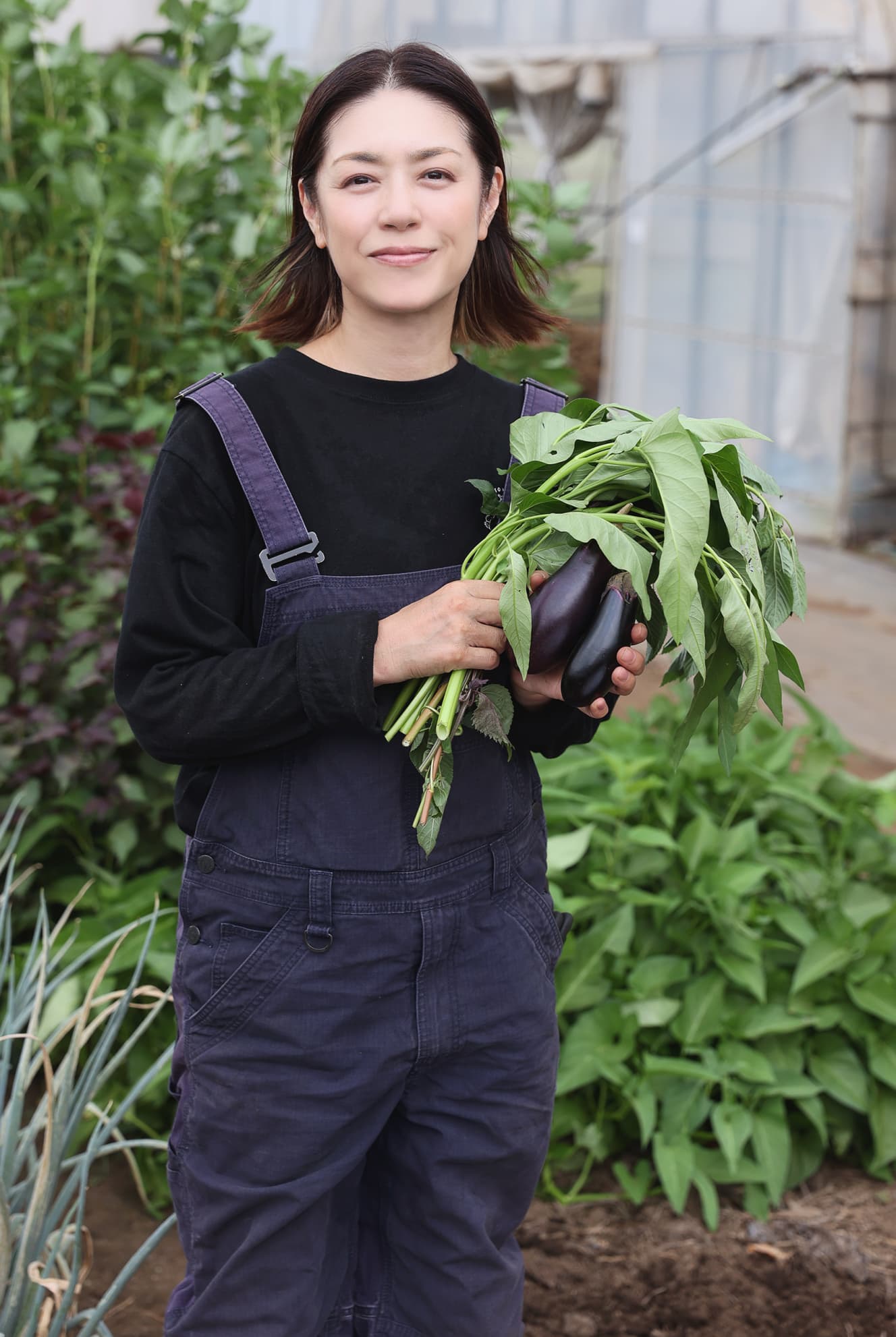
“I never dreamed that I would start my own garden. If I didn’t have the opportunity to spend a healthy life surrounded by fresh vegetables, I might have become a mean person (laughs).”
With a carefree smile on her face, Noriko Kato, 50, a multi-talented singer and actress, speaks of her life in the field.
In 1991, she was selected as a member of the “Sakurakko Club” and made her debut as a singer the following year. Since then, she has been active in a number of TV programs, including the variety show “Magical Brain Power! ” and many other TV programs. Recently, while continuing her entertainment activities, she has been devoting herself to growing vegetables.
“I have been farming for 11 years now. I used to be an indoor person who enjoyed listening to music and eating snacks at home, but since I got into farming, my days are very energetic! I have become a regular visitor to the farm every week to check on the vegetables and tinker with the soil. During the Corona season, I was depressed because I was always in a stay-home, but stepping on the soil in the fields helped me to realize the movement of the seasons and the life of the vegetables.”
She is so captivated by farming that she says it is “indispensable” to her life. What was the reason behind her decision to start farming?
“I first started farming because of a TV program I appeared on for about a year. I felt that I had not yet acquired any knowledge, experience, or ability. I talked to a farmer in Kokubunji, Tokyo, who had helped me with the program, and he agreed to continue lending me a section of his farm.”
“I tried until I could master it, and before I knew it, it had been 11 years. I have never wanted to quit,” she says.
“At first, there were times when I honestly wanted to skip work,” she says (laughs).
“But I always had a sense of mission in my heart, like I have to go out for a few days or the fields will be ruined, or I have to put up poles during typhoons. In the past three to four years, I have finally become accustomed to the work and feel that I have acquired some knowledge. I started to enjoy it when I could confidently pass on the vegetables I grew to the people around me. Now, although they take a lot of work, they are as cute as my own children.”
Kato, who grows seasonal vegetables, posts numerous recipes on her SNS that use vegetables harvested from her own garden. When asked about the most popular recipe among her husband and friends, she revealed that it is Chinese cabbage hot pot.
“The orange Chinese cabbage harvested in winter is just so sweet and delicious! We usually invite our friends over for a hot pot party every year. Before I started farming, I ate out a lot and wasn’t a good cook, but now I have the happy problem that I have to consume the vegetables I grow or they will go bad. I can now invent new recipes and make a variety of dishes, and my family is happy, so I always think, ″What if I revise it this way next time?” It’s very exciting.”
Farmers’ Suffering and Environmental Issues
In recent years, vegetable prices have skyrocketed due to a variety of factors. Kato, who is both a producer and a consumer, earnestly hoped that people would purchase vegetables without hesitation.
“We had typhoon No. 13 in early September, and we are still experiencing abnormal weather such as guerrilla downpours and heat waves. Farmers are taking countermeasures, but this summer was particularly bad. For example, edamame are sold in the supermarket as pods, but the process involves removing the pods from the branches, adjusting the size, and packing them in bags. It involves a lot of time and effort that you don’t see at the supermarket.”
“As interest in vegetables has grown, awareness of environmental issues has also taken root,” she says.
“There are not many things we can do, but there are not zero things we can do. I can only do things like changing the bags used to wrap vegetables to newspaper instead of plastic bags, using compost that breaks down food waste into compost, and donating my hair when I go to hair salons. I can’t do much more, but I hope that my efforts will one day help farmers and help Japan.”
While continuing to demonstrate her abilities as an agricultural girl, she also obtained certification as a tofu master in 2017.
She says, “When I was a little girl, I was fascinated by ‘Pink Lady,’ so I left my parents and lived alone at the age of 17. She made her debut in the entertainment industry, but at the age of 28, she decided to study abroad in France because she was unsure of how to live her life. I have always been the type of person who, when the idea strikes me, I absolutely take action. In the near future, I would like to write a book about vegetables. I want to master this path even more, and when the day comes when I catch up with my master in the field, I want to have my own farm and become the “best agricultural girl in Japan″ who can convey the charm of agriculture!”
The former idol is now living a rich and fulfilling life, covered in soil and struggling with life, and has blazed a new trail called ″Fields″.
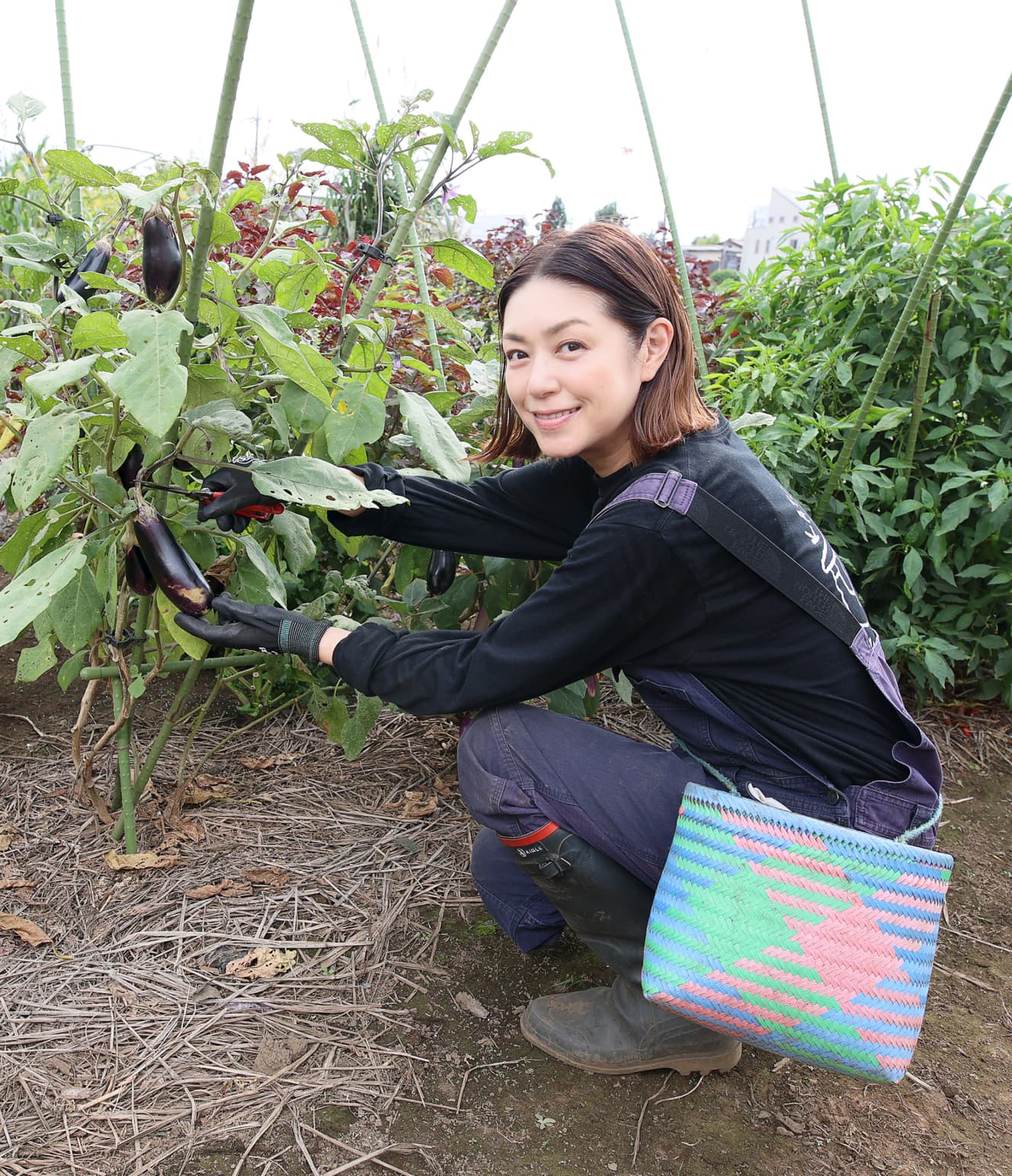

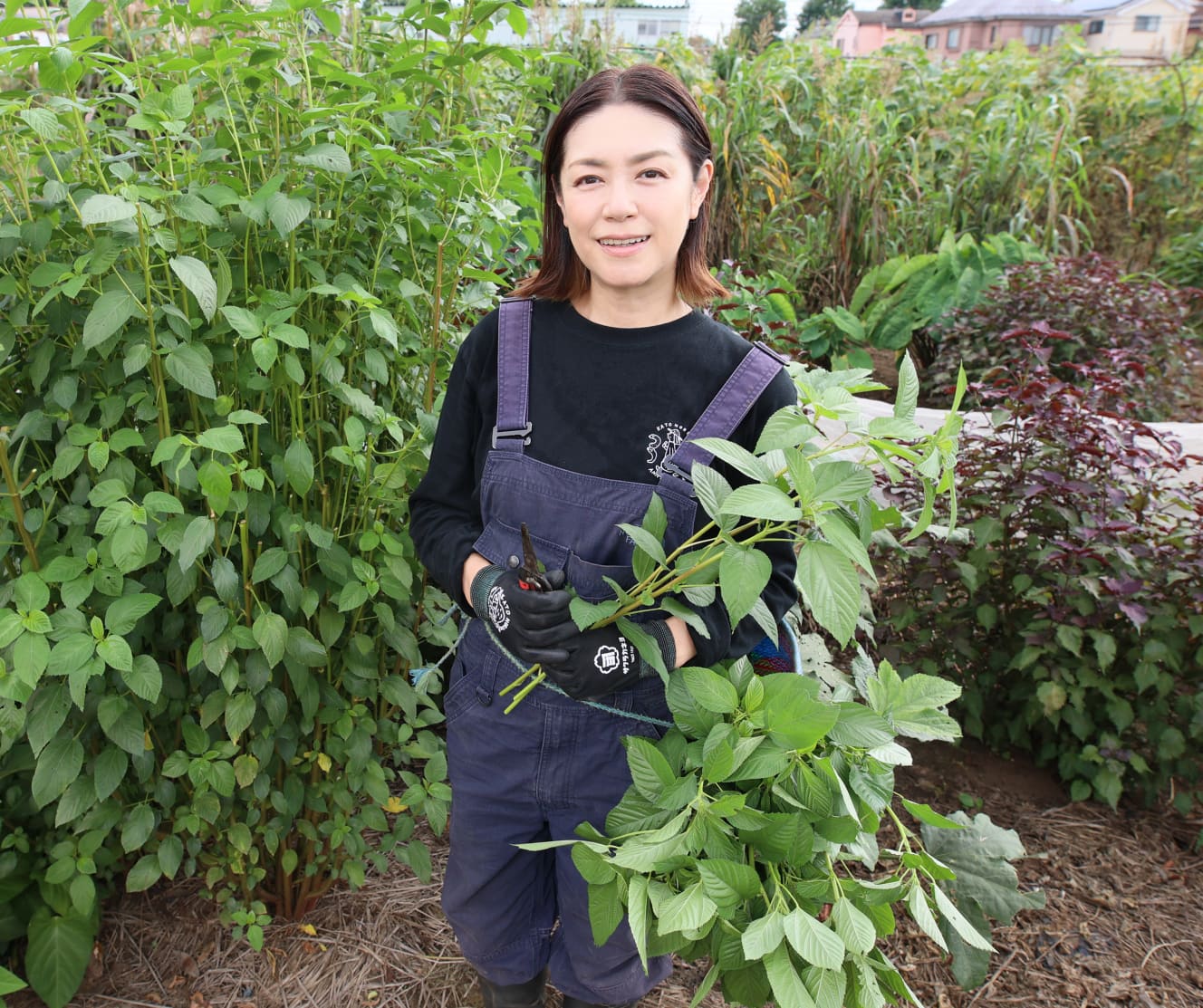
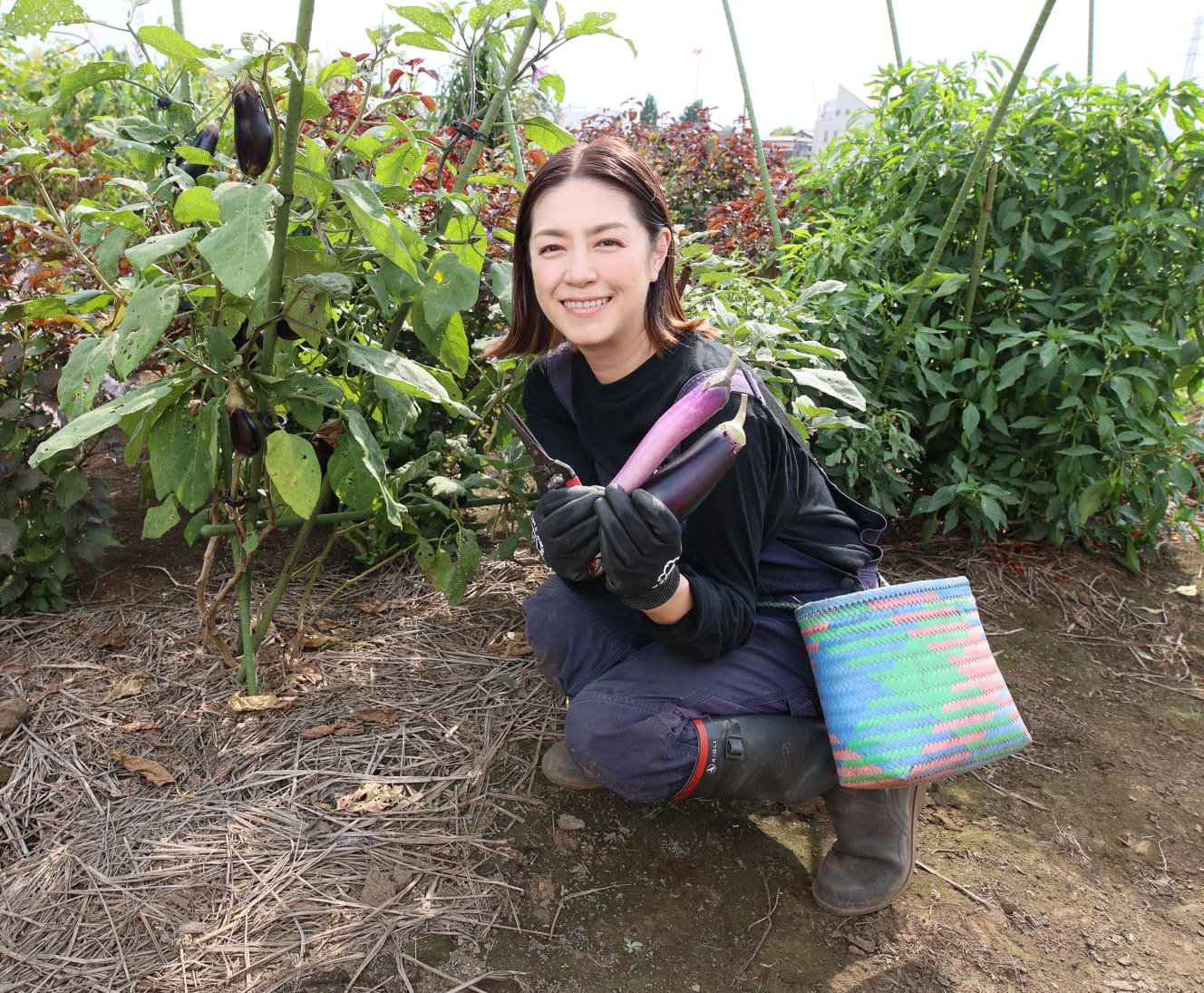
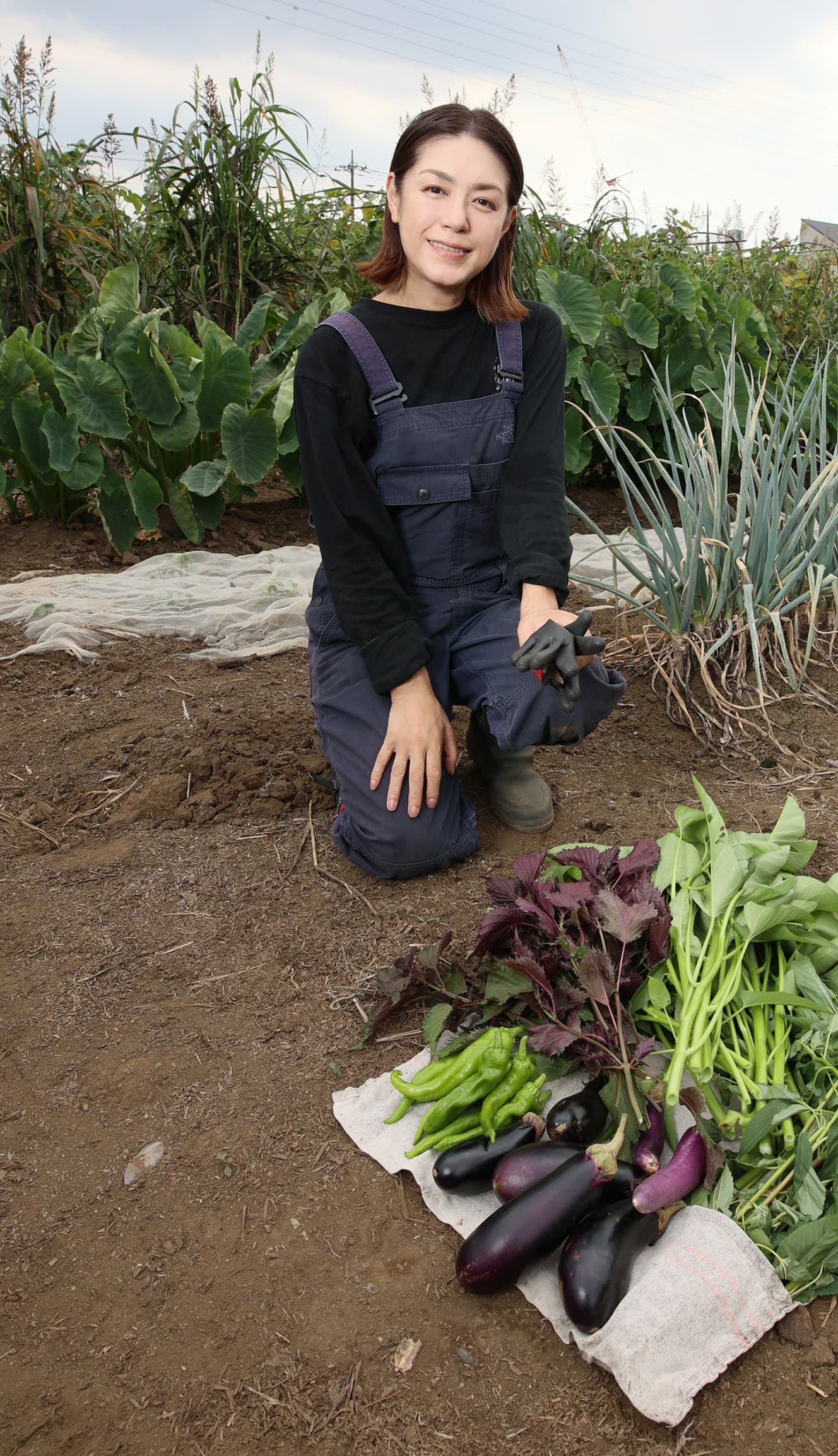
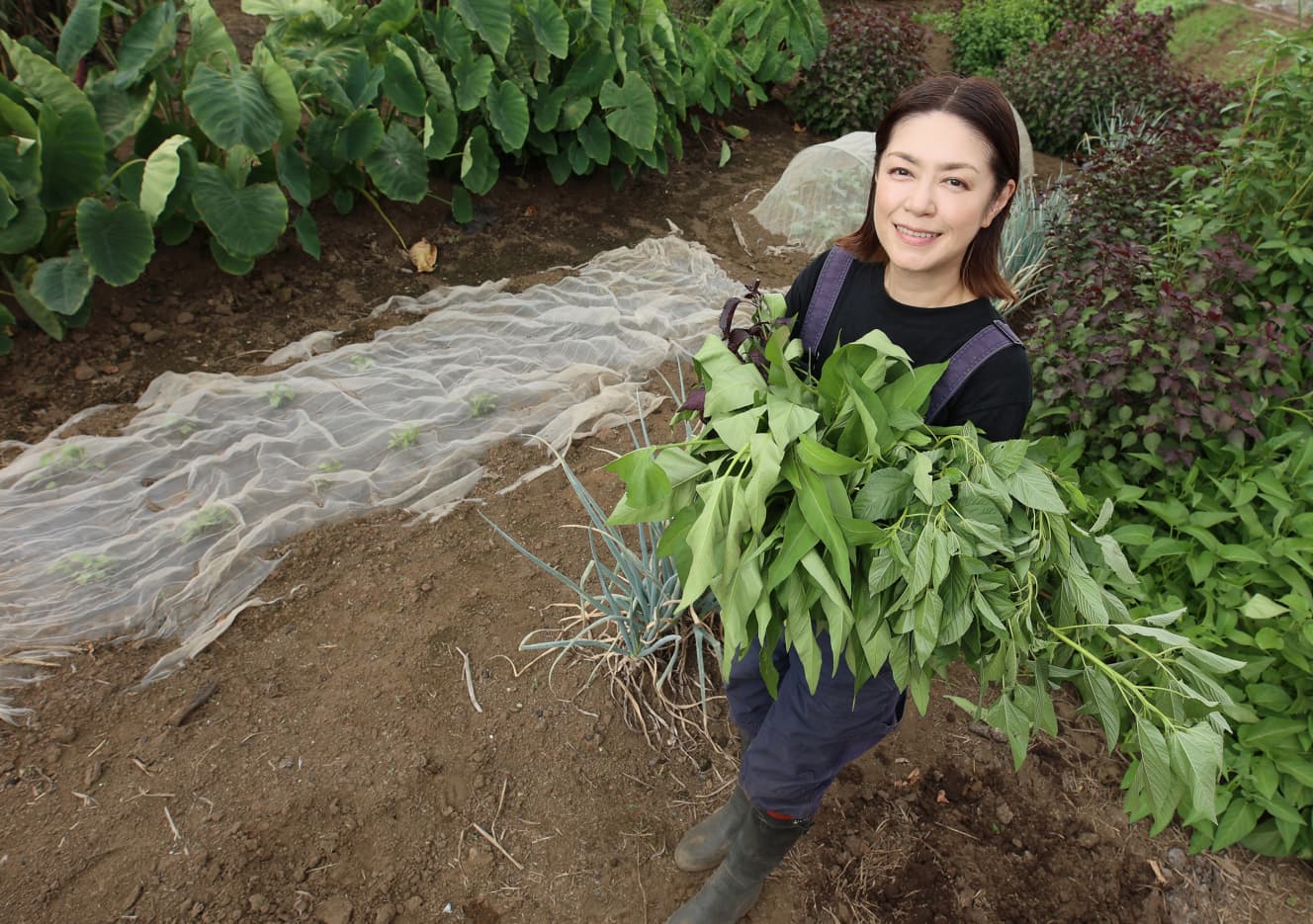
From the October 13 and 20, 2023 issues of FRIDAY
PHOTO: Takehiko Kohiyama Sankei Shimbun (3rd photo)